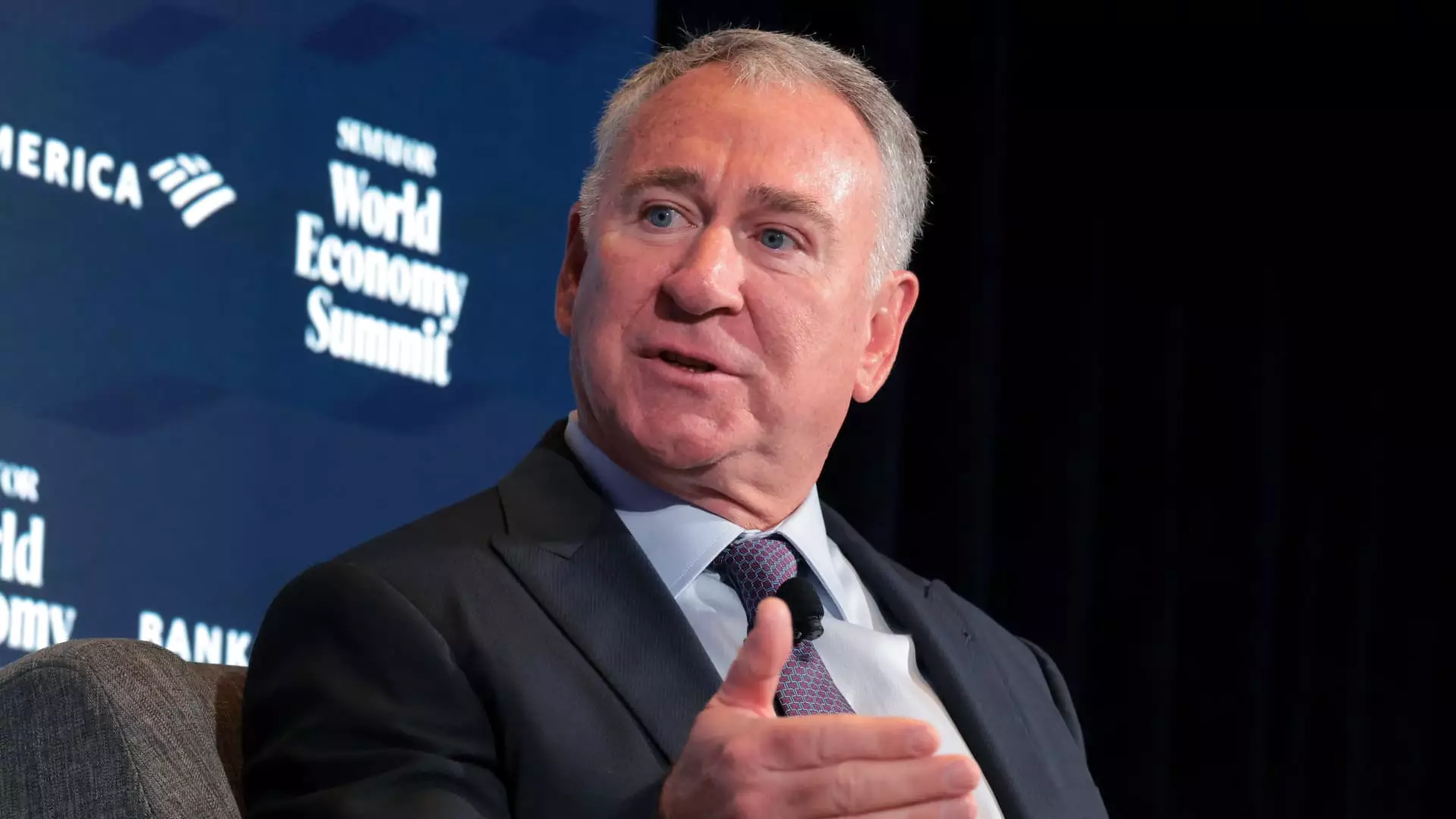The United States has long been viewed globally as an exemplar of freedom, cultural innovation, and economic strength. As Ken Griffin, CEO of Citadel, poignantly articulated at the World Economy Summit, the U.S. transcended the boundaries of geographical identity to become a brand synonymous with aspiration. Yet, the trade policies championed by former President Donald Trump have thrown this prestigious identity into a perilous state of decline. The recent imposition of unprecedented tariffs has not only sent shockwaves through global markets but has also jeopardized the very fabric of U.S. credibility.
The Ticking Time Bomb of Tariffs
Trump’s aggressive trade agenda culminated in the highest tariffs in decades, stirring unprecedented volatility on Wall Street. While some supporters heralded these actions as a necessary stance against nations perceived as economic threats, the ramifications have proven to be overwhelmingly negative. The recent 90-day pause on many tariffs—aside from those targeting China—seems nothing more than a desperate attempt to regain control. This erratic policy-making does not inspire confidence and has led investors to reevaluate their faith in the U.S. as a bastion of economic security.
Investor Sentiment in Freefall
The effects of this volatility are glaring; Treasury yields have surged while the U.S. dollar has weakened against foreign currencies. Such stark indicators signify a troubling shift where investors are questioning their longstanding belief in U.S. debt as the safest harbor for their capital. Griffin’s concerns are palpable: “We put that brand at risk.” The dismantling of trust in America’s financial markets hangs perilously in the balance, jeopardizing not just immediate investments but also the country’s long-term economic stability.
The Consequences of a Tarnished Reputation
The concept of brand equity extends beyond mere financial terms; it embodies a nation’s image, credibility, and leverage on the global stage. Griffin’s admonition that tarnishing this brand could take generations to rectify is a bitter pill we may soon have to swallow. In a world where economic relations are increasingly intertwined, isolating the U.S. through combative trade tactics may lead to the erosion of diplomatic relations that serve both political and economic interests.
A Call for Thoughtful Governance
Griffin’s critique does not come from a place of political resentment; rather, it is rooted in the responsibility and foresight that governance places upon its leaders. The administration, as Griffin aptly pointed out, must recognize that they uphold a brand, one that holds untold power and carries a wealth of expectation. Effective leadership should be marked by decisions that reflect humility, intelligence, and an understanding of the multidimensional aspects of the global economy. Instead, we’ve seen bombastic rhetoric that threatens the fabric of trust—trust that is paramount in international finance and beyond.
In an era defined by rapid global interconnectivity, America must reclaim its status not through isolationism and confrontational policies but through strengthening its brand—a brand founded on collaboration, economic integrity, and an unwavering commitment to upholding its values on the world stage. Only then can we restore what has been abruptly endangered.

